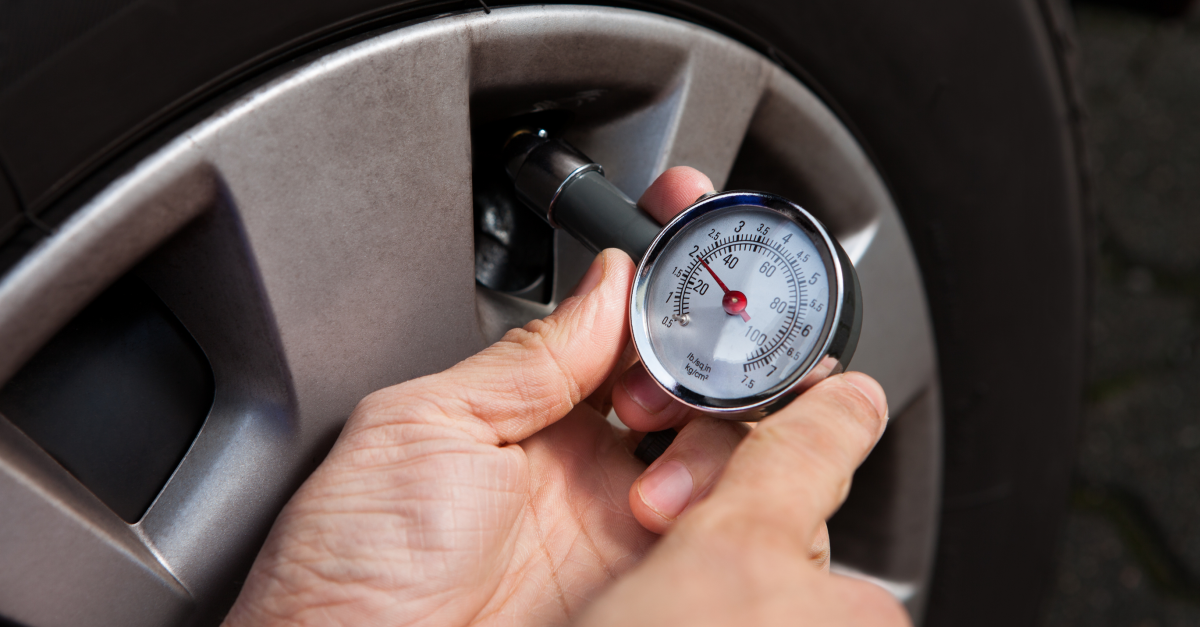
There’s no way of knowing your tires have enough air with a quick glance. Uneven wear or a bald spot stands out with a quick once-over, but even the experts rely on tools to determine air pressure.
“A tire can lose half its pressure without looking flat,” said Scott Jamieson, director of product management for Cooper Tire. “It’s not something you can visually estimate. Checking a tire’s air pressure is simple, but you need the right tool.”
Properly inflated tires have a longer lifespan and improve fuel economy. Modern vehicles offer tire pressure monitor systems (TPMS), but they are far from a catch-all.
“TPMS systems have limitations and should not be relied on as the sole source of information,” Jamieson said. “Sometimes a gauge won’t light up until the tire has gone 25 percent below factory recommendations or when all tires are gradually losing air pressure.”
A single tire under-inflated by as little as 8 psi could have its lifespan reduced by 9,000 miles, Jamieson said.
Tires packing too much air are equally detrimental to vehicle reliability and performance.
“Over-inflated tires are at-risk for cutting or puncturing upon impact with a curb or object in the roadway,” Jamieson said.
Every manufacturer recommends a specific air pressure for individual models. The figure is found in the owner’s manual and the inside panel of the driver’s side door. Jamieson suggests getting the air pressure in your tires checked monthly and before long drives.
Testing when the tires haven’t been driven on for a few hours provides for the most accurate reading. Heat causes air to expand, making measurements from a warm tire unreliable. This is also why air shouldn’t be added to warm tires.
“Keep a tire pressure gauge in your vehicle to make sure you are getting a consistent reading each time, instead of information from multiple gauges at different gas stations,” he said. “And don’t forget to check the spare tire every time.”
Jamieson shares the following insight about the importance of tire pressure and how to get it right.
- Inspect tires frequently. Air pressure should be tested monthly and before long trips. Also check your spare at this time.
- Get good readings. Check the air pressure when the tires are cold/haven’t been driven on. Air expands as it heats, and checking a hot tire gives an inaccurate reading. For the same reason, don’t add or reduce the amount of air in a tire when it’s hot.
- Don't wait for warning lights. Modern cars often come with tire pressure monitoring systems. While reliable, the systems aren’t a catch-all. For example, some systems don’t set out a notification until the air pressure has dipped to more than 25 percent below the manufacturer’s recommendation.
“Whether you’re traveling 20 or 2,000 miles, proper tire pressure, in addition to regular maintenance, will help keep you and your family safe on your next road trip,” Jamieson said.
Copyright © 2024 by Sensible Driver. All rights reserved.




















